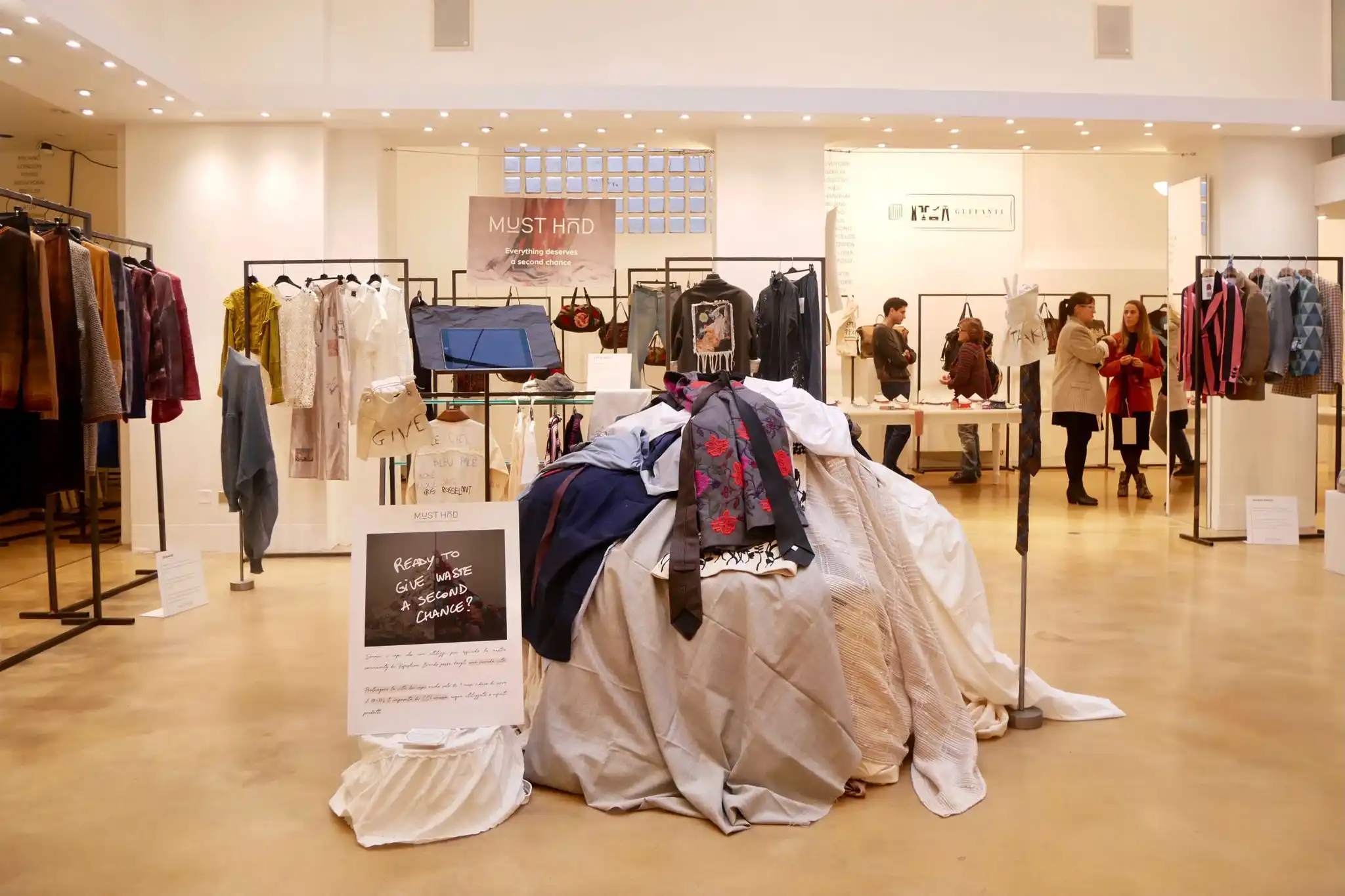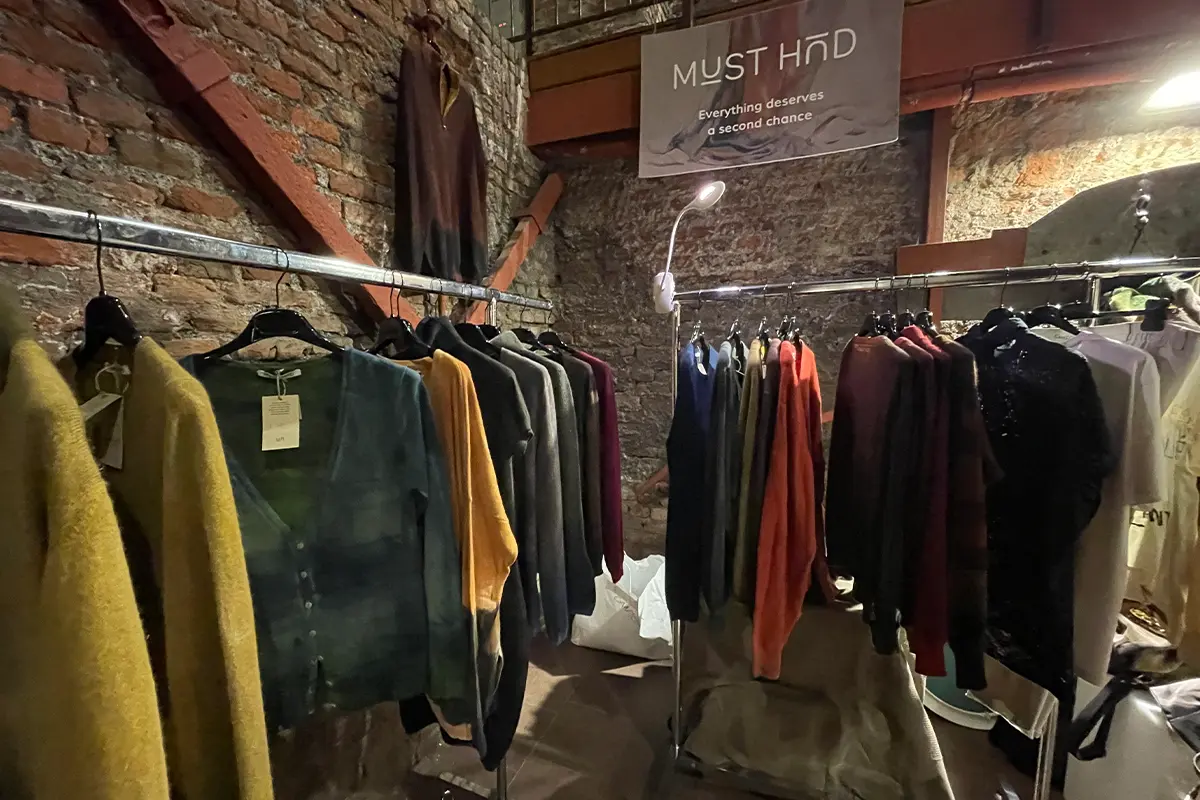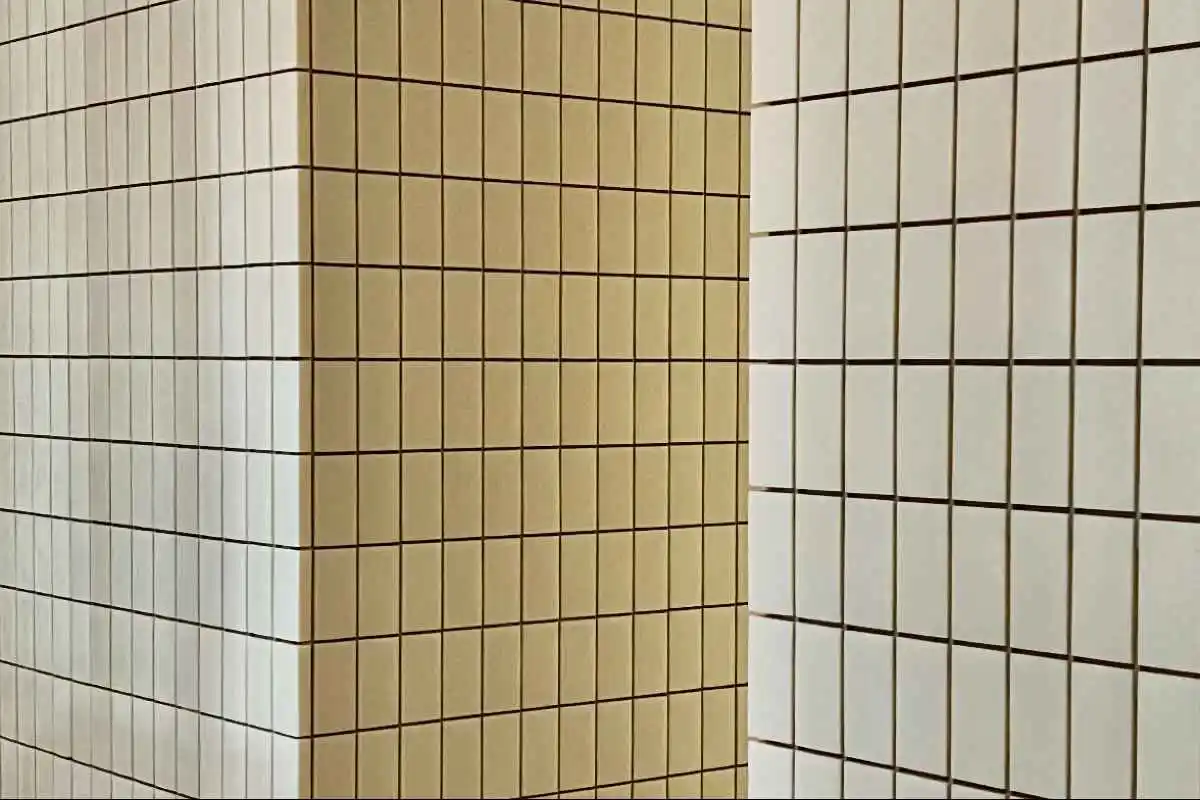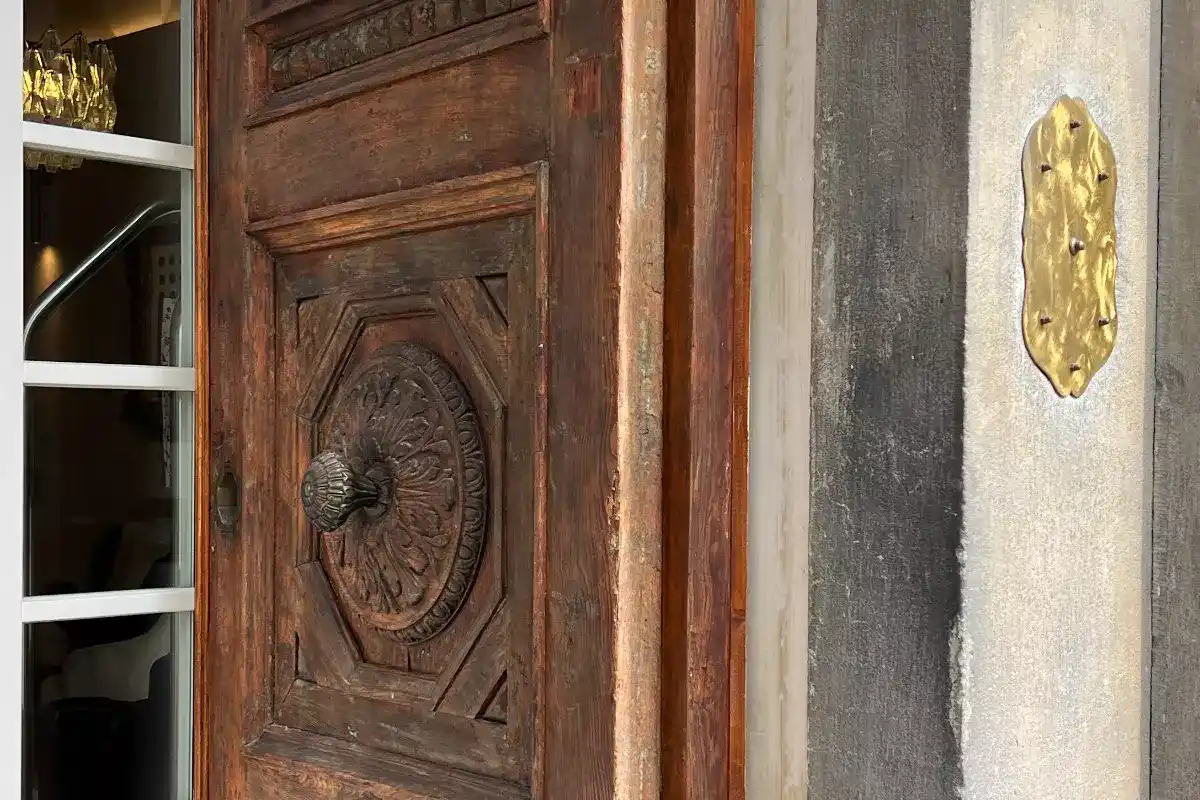The first requirement concerns the composition of the garment, which must contain seventy percent recycled materials, their second consideration is the brand’s storytelling
The business idea behind Must Had
In the midst of the pandemic, three friends – Matteo Aghemo, Eugenio Riganti, and Arianna Luparia – who shared an interest in fashion and already worked in the industry – decided to use their extra time for a new project. In 2021 Must Had came to life and changed the circular market.
Must Had is derived from Must-Have, which indicates clothing which is a must-have at all costs. Additionally, these words mark the beginning of consumerism led by brands who decided to profit from this trade. This shows how essential it is to change the paradigm to buy and reuse vintage or pre-owned pieces.
Must Had was first joined by the brand Laboratorio Luparia. As an artist, he collected and restored vintage cashmere clothing and repainted them to create new objects before the COVID lockdown, but he needed support to grow its business and increase its brand awareness.
After creating the portal that helped him out, the three founders were then able to create a strategy that would help other brands profit from the web as well.
The Must Had method
Based on Mrs. Luparia’s father’s experience, they decided that Must Had should be a digital business that helps refashion brands to reach customers and suppliers. Their services cover digitization, selling platforms, logistics, marketing, and sourcing of textile waste.
Must Had worked primarily with Made in Italy brands, but few European ones have made it inside their list. For the selection, the founders have developed several criteria that they will use to choose the brand with which they will later collaborate. The main requirement concerns the composition of the garment, which must contain at least seventy percent recovered materials. Other criteria are the aesthetics, quality, inclusivity, storytelling, etc. According to them, every label – and consequently every piece of clothing – must tell a story and convey a message.
By doing that, on Must Had, people can find high-end products with a classic attire that can fulfill the fashion taste of a more broad selection of people. In fact, they agreed to position themselves as premium, rather than “street”, a style which upcycling is often associated with.
Eventually, they also added a new service. They realized that people have clothes inside their wardrobes that they don’t use, but continue to preserve for the emotional value attached. The idea of Must Had is to
collect such items, have them creatively repurposed by their community of refashion brands, and eventually shipped back to the final customer.
Must Had: research and reports
Every five minutes, the fashion industry produces more than one million garments to put on the markets. At the same time, more than one truck loaded with fabrics ends up in landfills. However, less than one percent of those clothes end up being recycled and turned into new apparel.
In this scenario, the fashion industry must invest in more sustainable sources. Circular Fashion Tech has stated that the circular fashion market is overgrowing, with an annual growth rate of nine percent. The link between the former numbers and the yearly growth resides in the changes in consumer behaviors. The latter is the realization – especially in younger targets – that as customers, we play an active role in this matter.
Uniqlo x Must Had
When Must Had first launched, the market didn’t have a similar business since few people in Europe had attempted a similar venture. After the first approach to the market some companies understood their work and started collaborating with them.
This is the case for Uniqlo and its stores in Italy and Denmark. In fact, Must Had has been selected by Uniqlo to produce, for the first time, 50 upcycled curtains for their fitting rooms.
The regenerated curtains come from old unused furnishing fabrics and have been upcycled by Batna, one of the brands part of the Must Had community, who involved people in need and asylum seekers for the production. In addition, the Uniqlo patches were applied by a local association providing work to inmates from the prison of Turin.
After this experience, Must Had became the benchmark for a part of the defective products of the company, allowing that these are not discarded, but rather have new life. Indeed, Uniqlo has decided to dedicate a corner inside their shop to promote and sell Must Had upcycled items to their public.
The future of Must Had
Since the founding of the venture Must Had has as its slogan, ‘Everything deserves a Second Chance’ and it’s evolving accordingly. In fact, Mr. Agamo, Mr. Riganti, and Mrs. Luparia have started to raise awareness through university lectures and their jobs in order to decrease the pollution impact of the fashion industry. More services will follow, allowing companies to reduce their waste and address it to circular destinations.
Must Had
Must Had was founded by Matteo Aghemo, Eugenio Riganti, and Arianna Luparia in 2021. With their slogan ‘Everything deserves a Second Chance’ they sell unique upcycling clothes from different brands through their website. This year they have also launched a beta service that allows their customers to send them the clothes that they’re more affectionate to, allowing their brands to restore them and give them a second life instead of wasting it.




















